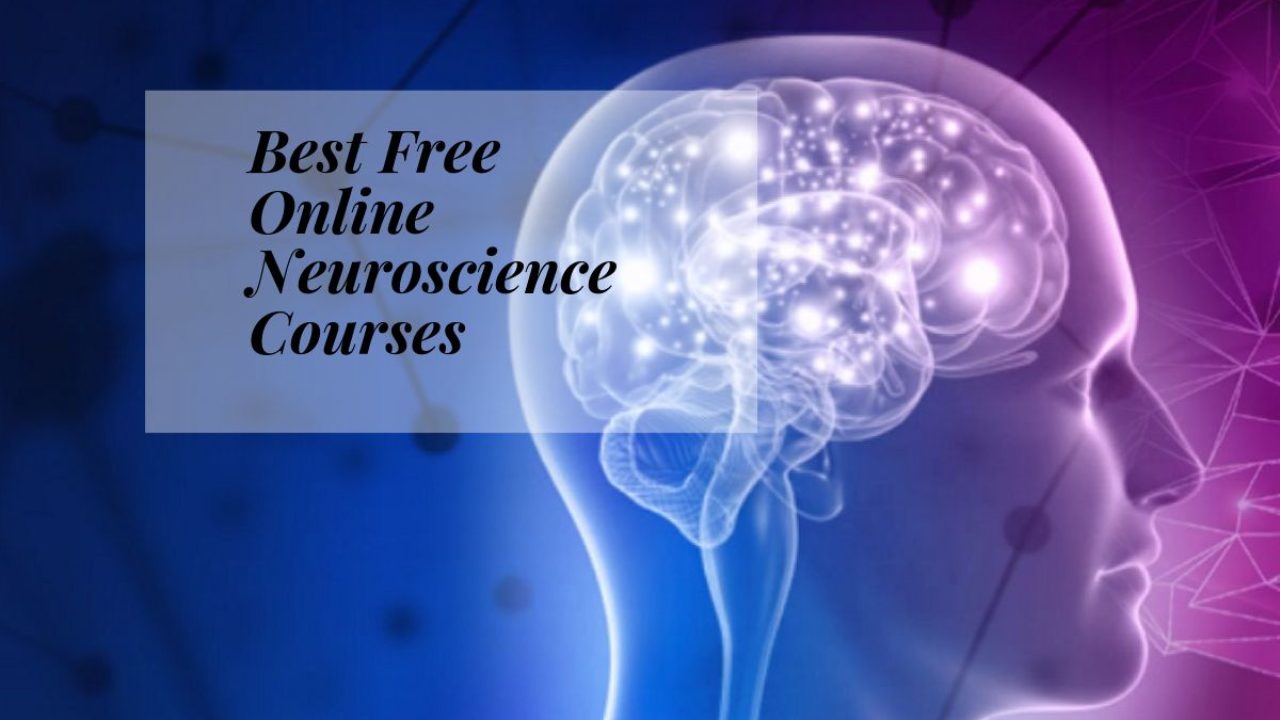Last Updated on December 15, 2022
Our Graduate Certificate in Cognitive Neuroscience program is designed to advance the scientific education and professional development of students through coursework covering a broad range of areas of neuroscience. The curriculum concentrates on theory and methodology for conducting and understanding research in the field and its potential application to education and clinical practice. Participants in this program will be able to use the innovative training they receive to advance to higher levels of excellence in professional practice and research. Get more information regarding Cognitive Neuroscience Certificate Online, educational neuroscience certificate online, neuroscience certificate programs, cognitive neuroscience course & cognitive neuroscience online masters.
Essentially that is the truth, the article below supplies you with the most current information on cognitive psychology free online course & neuroscience online course free. Just keep on reading to learn more.
You will also find related posts on cognitive science masters online, online neuroscience degree & neuroscience courses uk on infolearners
cognitive neuroscience online course

This free online course will introduce you to the functions of the different parts of the brain and their various methods of communication that enables the manifestation of cognitive processes. This course will also feature the different methods adopted by neuroscientists in studying the activities of a sound brain or an impaired brain. This course will be beneficial to those studying psychology, neuroscience, or any related field of study.
- Online Master of Science in Psychology
What Is Cognitive Neuroscience?
Have you ever wondered why we do the things we do? What makes us tick?
Human beings are utterly complicated animals, with utterly complicated thought processes. Ultimately, however, we are controlled by chemicals and electrical impulses. This, of course, is an overly simple explanation, and the actual processes that the brain goes through in order to produce certain reactions or thoughts are very complicated.
The enigma of what makes us tick can partly be explained by cognitive neuroscience, a very specific area of neuroscience. Cognitive neuroscience is the study of human cognition, or thought, as it relates to neuroscience, or the biological functions of the brain and nervous system. Basically, the goal of this type of neuroscience is to help psychologists understand how the physical and biological parts of the brain influence or create the less tangible parts, like thoughts, emotions, behaviors, and memories.

Cognitive neuroscience is a relatively new field, and the coining of this term actually has a very short, yet interesting, history. In the 1970’s, a small group of scientists and psychologists planned a dinner. Besides good food and banter, these dinner plans also included discussing how the brain enables the mind. Two attendants made a fateful decision to share a taxi to get to the dinner. It just so happens that these two gentlemen, Michael Gazzaniga and George Miller, were a neuroscientist and a cognitive psychologist.
Why Do We Need Cognitive Neuroscientists?
As mentioned above, cognitive neuroscientists play an important role in understanding the human mind. By better understanding how the mind works in relation to the physical aspects of the brain, scientists are often able to devise more effective treatment methods for certain disorders.

Not all mental, emotional, and behavioral disorders are able to be treated with counseling and psychotherapy alone. Some more severe disorders may need to be treated with medication as well. These medications alter how the brain functions, enabling it to work more efficiently or – in theory – how it is supposed to.
Some disorders that may benefit from medication include:
- Learning disabilities
- Schizophrenia
- Depression
- Anxiety
- Insomnia
- Bipolar disorder
What Are the Education Requirements to Become a Cognitive Neuroscientist?
Below is the complete educational path for the Psychologists:
| Psychologist Educational Track | School Programs | Average Education Length | Choosing Online or Campus |
|---|---|---|---|
| 1. Earn a Bachelor’s Degree | View Programs | 4 Years | Online or Campus |
| 2. Earn A Master’s Degree | View Programs | 2 Additional Years | Online or Campus |
| 3. Earn a PHD or PsyD | View Programs | 2-4 Additional Years | Online or Campus |
Because cognitive neuroscience is a vast mixture of several different disciplines, individuals interested in becoming cognitive neuroscientists may pursue a few different educational paths. A four year bachelor’s degree is often the starting point for a cognitive neuroscientist. In fact, some cognitive neuroscientists may even have more than one bachelor’s degree to start with.
Psychology, neurology, neuropsychology, or psychiatry degrees are all good places to start. Pursuing a cognitive neuroscience career also usually requires advanced degrees as well. For instance, most will go on to earn their master’s degrees and doctoral degrees.
Besides a number of biology and psychology courses, future cognitive neuroscientists will also usually take several courses in mathematics and research methods.
What Does a Cognitive Neuroscientist Do?
>A cognitive neuroscientist is primarily a researcher, on a quest to find out how our brains contribute to our cognitive function. These professionals might conduct research a few different ways.
With today’s technological boom, scientists and researchers are using computers more and more. A cognitive researcher is no exception. He might use computer simulations, for example, to test theories and hypotheses. A cognitive neuroscientist career might also involve monitoring a patient’s brain activity with special equipment.
A cognitive neuroscientist might also study and test samples of brain tissue, in order to better understand the mysteries of the human mind.
Where Do Cognitive Neuroscientists Work?
When first starting their careers, cognitive neuroscientists will first usually complete a fellowship, which are very similar to internships. During a fellowship, a cognitive neuroscientist will work alongside experienced professionals in the field. Most cognitive neuroscience fellowships last a couple years. After completing their fellowships, cognitive neuroscientists are then able to look for permanent employment in a number of different facilities.
Universities will often hire cognitive neuroscientists as researchers and professors. Some other possible places of employment might include research facilities and pharmaceutical companies.

What Is the Median Annual Salary of a Cognitive Neuroscientist?
Cognitive neuroscientist salaries can vary, depending on a few different factors. Scientists with more advanced degrees will usually be able to command higher salaries, for instance.
The type of facility that a cognitive neuroscientist works in will also have an impact on how much he makes. For example, the median annual salary for biological scientists in 2010 was $71,310. Those that worked at educational institutes made less than that, however, with a median salary of $59,200. The same type of scientists working for pharmaceutical companies, on the other hand, made slightly more, with the median salary being $74,670.

Graduate Certificate Courses
- This program requires graduate students to complete 15 credits with a cumulative GPA of 3.0 and a “B” or better in all courses counted toward the certificate.Core Requirement 1: Cognitive Neuroscience (at least 3 credits required)
- DEP 5058 Biological Basis of Behavior Development (3)
- EXP 5667 Cognitive Neuroscience (3)
- PHI 5931 Advanced Topics in Philosophy of Mind and Cognitive Science (3)
Core Requirement 2: Neuroscience (at least 3 credits required)
- BME 5505C Engineering Foundation of Medical Imaging Instrument (3)
- PHY 6716 Advanced Biophysics (3)
- ZOO 5785 Advanced Neurobiology (3)
Electives (up to 9 credits required)
- CHM 5305 Graduate Biological Chemistry (3)
- EXP 5508 Applied Cognitive Psychology (3)
- EXP 5527 Memory and Consciousness (3)
- OTH 5524 Adaptation of Human Occupation and Environment for Neuromotor Disorders I (3)
- OTH 5438 Adaptation of Human Occupation and Environment for Neuromotor Disorder II (3)
- PCB 5835 Neurophysiology (3)
Additional courses may be accepted for the certificate with
approval of the program director.For more information, consult the Graduate Certificates Catalog.
- ApplicationCertificate applicants should complete the Graduate Certificate Application and submit it to the department for approval. Approved certificate applications will be forwarded to the Registrar for processing.
Free Cognition and Neuroscience Courses
In the 1960s, people began to combine the study of the brain as an anatomical object and the psychological study of the mind. This combination culminates in the brain’s mechanical functions. One top college in this field offers its coursework to the public for free through Open Courseware.
Massachusetts Institute of Technology (MIT)
The founder of neuropsychology was also the founder of MIT’s Department of Brain of Cognitive Sciences: Professor Hans-Lukas Teuber. Although the department has gone through many name changes and head-of-department changes in the meantime, it remains an excellent academic program for students who wish to learn about neurophysiology, neuroanatomy, and neural processes. Through Open Courseware, you can learn about the fascinating complexities of the brain, too.
- Introduction to Neuroscience
- Neuroscience and Behavior
- Statistical Methods in Brain and Cognitive Science
- Cellular Neurobiology
- Systems Neuroscience Lab
- Experimental Molecular Neurobiology
- Laboratory in Cognitive Science
- Neural Basis of Learning and Memory
- Cognitive Neuroscience
- Psycholinguistics
- Cognitive Processes
- Object and Face Recognition
- Affect: Neurobiological, Psychological and Sociocultural Counterparts of ~’Feelings~’
- Infant and Early Childhood Cognition
- Developmental Neurobiology
- Neural Plasticity in Learning and Development
- Brain Structure and Its Origins
- Introduction to Computational Neuroscience
- Scene Understanding Symposium
- Language Acquisition
Free Online Cognitive Neuroscience Degree
| Course | Program Level | Format | Assignments | Quizzes & Exams | Downloadable |
|---|---|---|---|---|---|
| Introduction to Neuroscience | Undergraduate | Text Lessons | Yes | Yes | Yes |
| Neuroscience and Behavior | Undergraduate | Audio Lectures | Yes | Yes | Yes |
| Statistical Methods in Brain and Cognitive Science | Undergraduate | Text Lessons | Yes | Yes | Yes |
| Cellular Neurobiology | Undergraduate | Text Lessons | Yes | Yes | Yes |
| Systems Neuroscience Lab | Undergraduate | Text Lessons | Yes | No | Yes |
| Experimental Molecular Neurobiology | Undergraduate | Text Lessons | Yes | No | Yes |
| Laboratory in Cognitive Science | Undergraduate | Text Lessons | Yes | No | Yes |
| Neural Basis of Learning and Memory | Undergraduate | Text Lessons | Yes | Yes | Yes |
| Cognitive Neuroscience | Undergraduate | Text Lessons | Yes | Yes | Yes |
| Psycholinguistics | Undergraduate | Text Lessons | Yes | No | Yes |
| Cognitive Processes | Undergraduate | Text Lessons | No | No | Yes |
| Object and Face Recognition | Undergraduate/Graduate | Text Lessons | Yes | Yes | Yes |
| Affect: Neurobiological, Psychological and Sociocultural Counterparts of ‘Feelings’ | Undergraduate | Text Lessons | Yes | No | Yes |
| Infant and Early Childhood Cognition | Undergraduate | Text Lessons | Yes | No | Yes |
| Developmental Neurobiology | Undergraduate/Graduate | Textbook | Yes | Yes | Yes |
| Neural Plasticity in Learning and Development | Graduate | Text Lessons | Yes | No | Yes |
| Brain Structure and Its Origins | Undergraduate | Audio Lectures | Yes | Yes | Yes |
| Introduction to Computational Neuroscience | Undergraduate | Text Lessons | Yes | No | Yes |
| Scene Understanding Symposium | Undergraduate/Graduate | Text Lessons | No | No | Yes |
| Language Acquisition | Undergraduate | Textbook | Yes | Yes | Yes |
